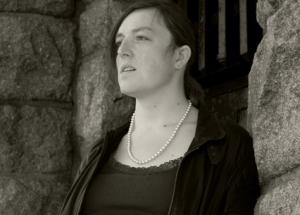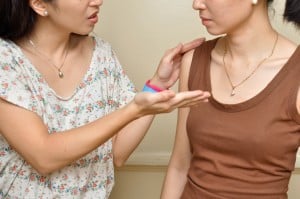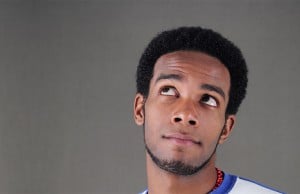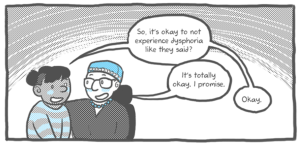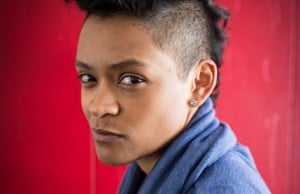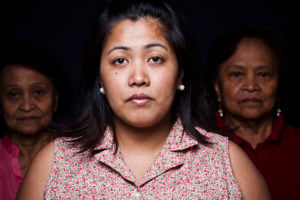
Source: Fame Magazine
A friend recently told me a racist joke and expected me to find it as hilarious as she did. When I called her out for telling an offensive joke, she was outraged.
“Gosh, Sarah, why are you always so serious? Why can’t you ever just take a joke?”
I’ve had this experience a million times, and I know you have, too. It’s one of the complicated realities that come along with being a progressive-minded person.
The jokes just aren’t as funny anymore.
When we can see the humanity behind the people who these jokes target, and when we understand the implications of the privileged laughing at the marginalized, we lose our ability to laugh at their expense.
We lose the ability to laugh at jokes that make sweeping generalizations about groups of people.
We lose the ability to laugh at jokes that mock and ridicule people who already experience countless oppressions in their lives.
And that’s a good thing.
But really, this conversation extends beyond jokes. It speaks to the idea of “political correctness” as a whole.
In my relationships, I demand a certain level of politically correct accountability. I demand a relationship where I can feel safe, and where the other person can feel safe, too.
There is an entire world that exists where marginalized people cannot be safe. I believe fully that the people who I love and with whom I interact deserve to be safe within the context of our relationship, because there is an entire fucking world where neither of us is safe.
But if you need another reason to be against “politically incorrect” humor and conversation, take this into consideration: it is lazy.
It’s so lazy!
We live in a world where politically incorrect thought is the norm, and the alternative is looked down upon. Politically incorrect thought is so ingrained in our minds that we have to work harder to think of inclusive language and jokes.
What’s so funny about a joke that requires no effort?
Everyday Feminists, let’s work harder.
Let’s put the extra work into only telling jokes that won’t offend whole groups of people. Let’s put the extra effort into calling the people around us to do the same.
Not only will the jokes become smarter and funnier, but also less dangerous.
It’s true that I’ve lost friends over this new standard that I’ve imposed. I bet you have and might, too.
But here’s the thing: the friends who are left are more intelligent, more progressive, more respectful, and are generally aligned with the kind of life I want to lead.
The relationships that remain are built on a mutual respect and understanding that it is simply not acceptable to shame and mistreat other humans.
Those relationships sound a lot healthier than the alternative, don’t they?
Offensive jokes are toxic, and if the people who make them can’t part with the privilege that allows them to make such jokes in the first place, then they are toxic, too.
There’s a lot to be said for weeding out the toxicity from our lives.
Consider how unwelcoming this world is for women, for trans people, for people of color, for people with disabilities, for people who are fat, for people who are poor — for all of us in some way or another.
I think we owe it to the people around us to co-create a relationship where only safety is allowed.
I think we owe it to people not to make fun of anyone based on innate characteristics that cannot be changed, such as race, sex, gender identity, body type, and so on.
I think we owe it to people to create relationships that are safe from shame for not meeting society’s ever-changing ideas of who is (and isn’t) “acceptable.”
Don’t you think so, too? Don’t you think we all deserve to be held accountable to language and jokes that don’t harm already-marginalized people?
Don’t you think we should lift each other up through our interactions? Isn’t that the whole point of being a human in this world, anyway?
To me, the answer to politically incorrect jokes is simple: Stand in solidarity with the people who are the butt of the joke. My role as a human is clear; it’s to use my voice to lift others.
That’s why I stand up to politically incorrect jokes. And that’s why I hope you do, too.
[do_widget id=”text-101″]
Sarah Ogden is a graduate student in Social Work at the University of Pennsylvania, where she is focusing on clinical work with survivors of trauma, works at a domestic violence agency as a therapist intern, and volunteers as an abortion and pregnancy loss doula. Previously, she’s worked for a suicide and rape crisis hotline and as an emergency room advocate for survivors of sexual assault. Follow her on Twitter @xsogden. Read her articles here.
Search our 3000+ articles!
Read our articles about:
Our online racial justice training
Used by hundreds of universities, non-profits, and businesses.
Click to learn more
Most Read Articles
- « Previous
- 1
- …
- 30
- 31
- 32





